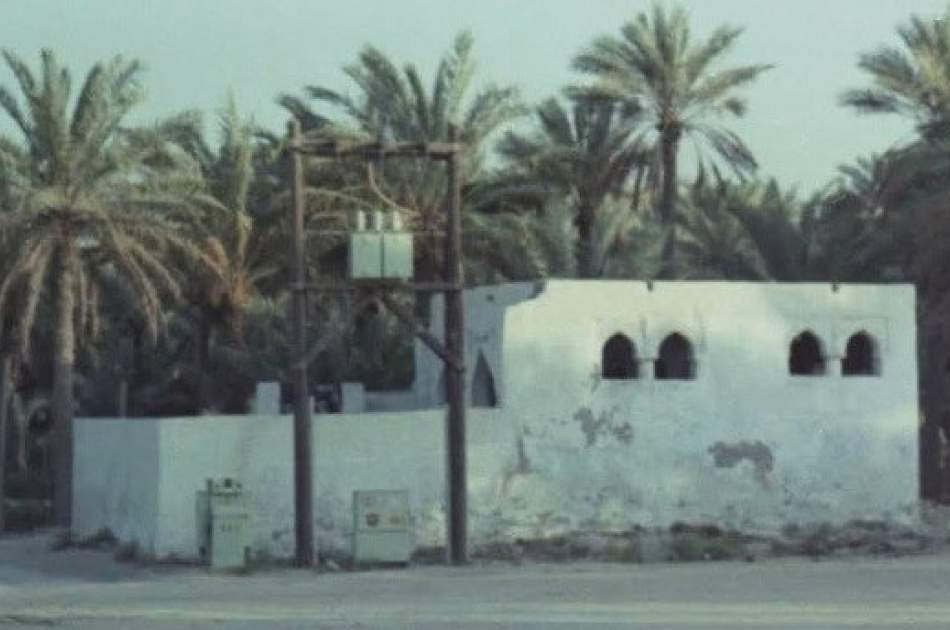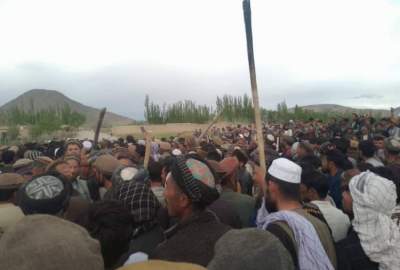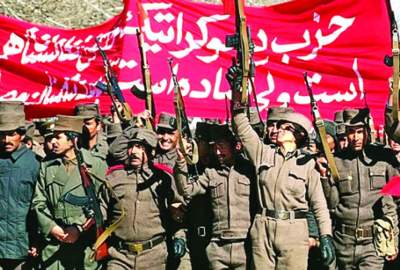Al Saud continues its approach to target the mosques, the old works of "Qatif" and "Al-Ahsa" as well as the people of this region.
Publish dateTuesday 15 November 2022 - 15:20
Story Code : 260985
Afghan Voice Agency (AVA): On November 10, 2022, the Saudi authorities destroyed the historic "Al-Harif" mosque located between the cities of "Al-Awamiyyah" and "Al-Qadih" and emptied its contents.
Saudi authorities cited the reason for the destruction of this historical mosque as the need to widen the roads extending from Al-Awamiyah to Qatif.
According to Tasnim news agency, quoted by Al-Jazeera Mirror, this is not the first time that the Saudi authorities destroy the Shiite mosque. Rather, last year they ordered the destruction of the Ahed Mosque between the two cities of Umm Hamam and Al Malaha in the west of Qatif province under the pretext of neighborhood development.
Observers emphasized that the goal of Saudi Arabia with this action is to destroy the streets that witnessed protests against the Saudi government in March 2011, and this policy was also adopted in order to take revenge on the families who supported the protesters in the 2011 protests.
The destruction of the Al-Hareif Mosque and before that Al-Ahd is part of an arbitrary and systematic sectarian discrimination by Al Saud against the people of Qatif and Al-Ahsa, in which the Saudi authorities deliberately target the cultural and religious heritage of the region.
In December 2020, the Saudi authorities destroyed the "Imam Hussain (AS)" mosque in "Al-Zarah" located in the south of Al-Awamiyyeh region after they surrounded it without prior warning in the morning. This mosque was the place where the martyr "Nimr Baqir al-Nimr" led the prayer congregation.
Nimr Baqir al-Nimr was a Saudi Shia jurist who was arrested following the Saudi Shia protests in 2012, and on the day of the Saudi Arabian Criminal Court, Wednesday, October 16, 2015, he was executed by sword and crucified on the charge of "action against national security and war". He publicly condemned and was executed on January 2, 2016. His execution caused widespread negative reactions in the region and independent international organizations.
This is while the media recently announced that the Al Saud regime has decided to destroy new areas in Qatif. October 2022, the operation to demolish the center of Qatif began as part of the alleged plan to develop the street known as "Malek Abdul Aziz".
Riyadh's policy to destroy the cultural, historical and social signs of the people of Qatif region has not stopped, while the Al Saud regime continues its attacks on the cities and villages of this region day by day, and the series of systematic destruction of the identity of the children of this region was in the shadow of nothing. The competition will continue.
On December 13, 2017, Saudi authorities attacked Al-Shuwayke neighborhood in southern Qatif, where their bulldozers destroyed a number of houses and shops, disrupting the livelihood of Saudi citizens.
The House of Saud has intensified its arbitrary actions against the residents of the mainly Shiite province of Qatif and its towns; Arrests, executions and indiscriminate attacks in the villages and cities of the Sharqiya region contradict all human, moral and legal standards as well as international laws.
The security forces are trying to demolish hundreds of houses in the center of Qatif, in order to displace thousands of people. On the surface, the regime claims that this plan is development and includes charity projects, but its hidden intention is bigger and more dangerous.
The Saudi regime is trying to change the structure of the Shiite population in this region in order to weaken its largest minority, and settle the citizens of other countries and foreigners in this region.
The residents of this area have been informed of the demolition plan and have been warned about these malicious intentions, but they refuse to leave their homes for several reasons, including the fact that they are supposed to be compensated for the demolition of their homes, which is inflated by inflation and high prices. The houses do not fit and they cannot buy a house with that money but can rent.
So far, dozens of Saudi Shias have been arrested by the Al Saud security apparatus; Although the arrest of Shia activists and opponents of the Saudi government has always existed in Saudi Arabia, since the crown prince of "Mohammed bin Salman" since June 2017, the process of arrests and repression of Shiites and Saudi opponents has increased significantly, such that in May 2019 The Saudi government executed 37 people and beheaded them coldly. Also, on March 12, 2022, 41 Saudi Shia protesters and residents of Al-Ahsa and Qatif regions in eastern Arabia were executed.
About 10 to 15 percent of Saudi Arabia's population is made up of Shiites, who mainly live in "Al-Sharqiya" province. Although Al-Saud's repression includes all the people of this country, the Shiites of Saudi Arabia are facing a more severe and widespread violation of human rights.
The widespread violation of human rights in Saudi Arabia is an issue that has always attracted the attention of international human rights organizations and groups, but it should be noted that sectarian violence and systematic discriminatory policies, especially against Shiites in Saudi Arabia, are among the cases that despite the pursuit of victims A lot, it has often been left out of the eyes of the international community and neglected.
With a sectarian attitude, Al-Saud views Saudi Shiites as "second-class citizens", this view causes Saudi Shiites to be deprived of their basic rights and witness the all-round discrimination of Al-Saud.
Saudi authorities cited the reason for the destruction of this historical mosque as the need to widen the roads extending from Al-Awamiyah to Qatif.
According to Tasnim news agency, quoted by Al-Jazeera Mirror, this is not the first time that the Saudi authorities destroy the Shiite mosque. Rather, last year they ordered the destruction of the Ahed Mosque between the two cities of Umm Hamam and Al Malaha in the west of Qatif province under the pretext of neighborhood development.
Observers emphasized that the goal of Saudi Arabia with this action is to destroy the streets that witnessed protests against the Saudi government in March 2011, and this policy was also adopted in order to take revenge on the families who supported the protesters in the 2011 protests.
The destruction of the Al-Hareif Mosque and before that Al-Ahd is part of an arbitrary and systematic sectarian discrimination by Al Saud against the people of Qatif and Al-Ahsa, in which the Saudi authorities deliberately target the cultural and religious heritage of the region.
In December 2020, the Saudi authorities destroyed the "Imam Hussain (AS)" mosque in "Al-Zarah" located in the south of Al-Awamiyyeh region after they surrounded it without prior warning in the morning. This mosque was the place where the martyr "Nimr Baqir al-Nimr" led the prayer congregation.
Nimr Baqir al-Nimr was a Saudi Shia jurist who was arrested following the Saudi Shia protests in 2012, and on the day of the Saudi Arabian Criminal Court, Wednesday, October 16, 2015, he was executed by sword and crucified on the charge of "action against national security and war". He publicly condemned and was executed on January 2, 2016. His execution caused widespread negative reactions in the region and independent international organizations.
This is while the media recently announced that the Al Saud regime has decided to destroy new areas in Qatif. October 2022, the operation to demolish the center of Qatif began as part of the alleged plan to develop the street known as "Malek Abdul Aziz".
Riyadh's policy to destroy the cultural, historical and social signs of the people of Qatif region has not stopped, while the Al Saud regime continues its attacks on the cities and villages of this region day by day, and the series of systematic destruction of the identity of the children of this region was in the shadow of nothing. The competition will continue.
On December 13, 2017, Saudi authorities attacked Al-Shuwayke neighborhood in southern Qatif, where their bulldozers destroyed a number of houses and shops, disrupting the livelihood of Saudi citizens.
The House of Saud has intensified its arbitrary actions against the residents of the mainly Shiite province of Qatif and its towns; Arrests, executions and indiscriminate attacks in the villages and cities of the Sharqiya region contradict all human, moral and legal standards as well as international laws.
The security forces are trying to demolish hundreds of houses in the center of Qatif, in order to displace thousands of people. On the surface, the regime claims that this plan is development and includes charity projects, but its hidden intention is bigger and more dangerous.
The Saudi regime is trying to change the structure of the Shiite population in this region in order to weaken its largest minority, and settle the citizens of other countries and foreigners in this region.
The residents of this area have been informed of the demolition plan and have been warned about these malicious intentions, but they refuse to leave their homes for several reasons, including the fact that they are supposed to be compensated for the demolition of their homes, which is inflated by inflation and high prices. The houses do not fit and they cannot buy a house with that money but can rent.
So far, dozens of Saudi Shias have been arrested by the Al Saud security apparatus; Although the arrest of Shia activists and opponents of the Saudi government has always existed in Saudi Arabia, since the crown prince of "Mohammed bin Salman" since June 2017, the process of arrests and repression of Shiites and Saudi opponents has increased significantly, such that in May 2019 The Saudi government executed 37 people and beheaded them coldly. Also, on March 12, 2022, 41 Saudi Shia protesters and residents of Al-Ahsa and Qatif regions in eastern Arabia were executed.
About 10 to 15 percent of Saudi Arabia's population is made up of Shiites, who mainly live in "Al-Sharqiya" province. Although Al-Saud's repression includes all the people of this country, the Shiites of Saudi Arabia are facing a more severe and widespread violation of human rights.
The widespread violation of human rights in Saudi Arabia is an issue that has always attracted the attention of international human rights organizations and groups, but it should be noted that sectarian violence and systematic discriminatory policies, especially against Shiites in Saudi Arabia, are among the cases that despite the pursuit of victims A lot, it has often been left out of the eyes of the international community and neglected.
With a sectarian attitude, Al-Saud views Saudi Shiites as "second-class citizens", this view causes Saudi Shiites to be deprived of their basic rights and witness the all-round discrimination of Al-Saud.
avapress.com/vdcjoye8iuqemhz.92fu.html
Tags
Top hits







